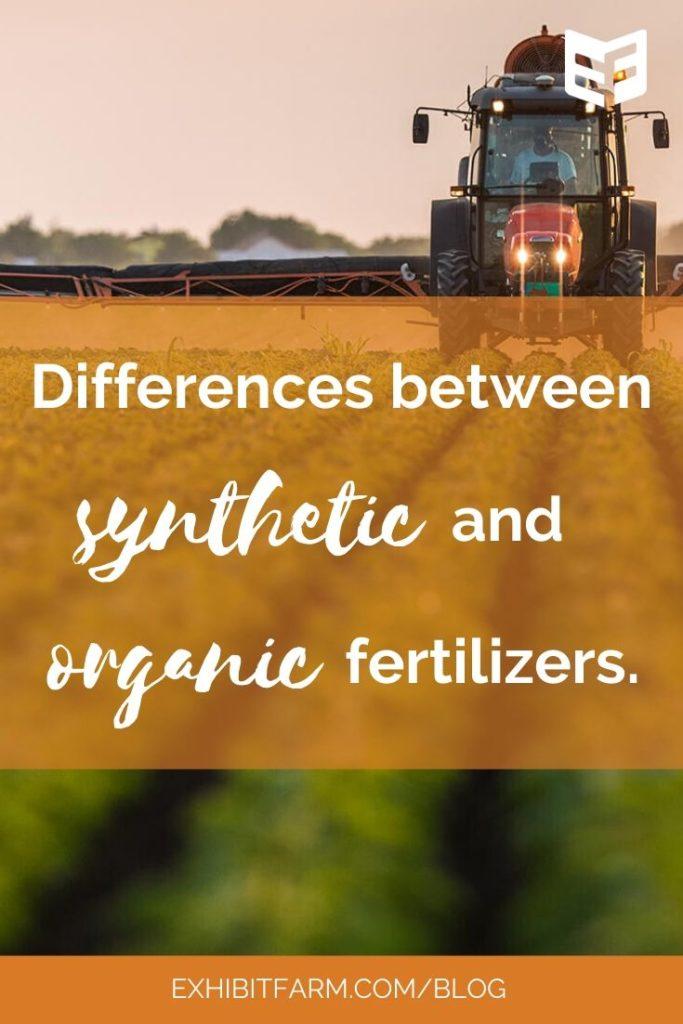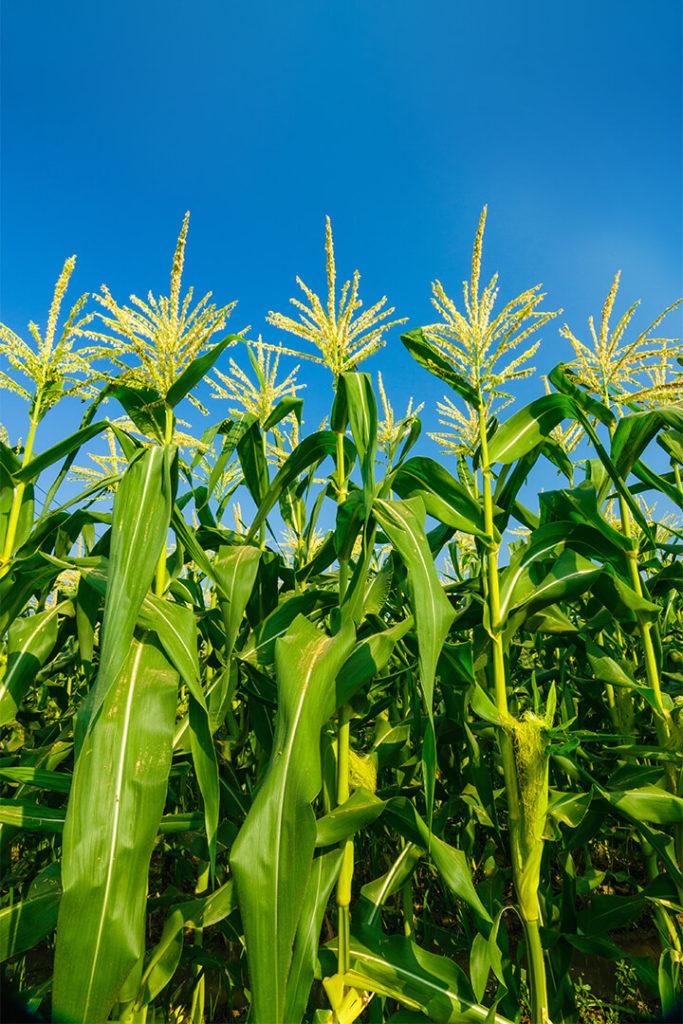
Chemical vs. organic fertilizers. Those are some loaded words, right? Many consumers distrust any idea of chemicals associated with their food because it sounds unnatural. As it turns out, though, all fertilizers supply chemicals. That’s why we refer to “synthetic vs. organic” fertilizers, not “chemical vs. organic.”
As you might guess from the names, these two types of fertilizers are one of the differences between organic and conventional agriculture. Now, we’re not here to persuade you to choose either organic or conventional methods. That decision involves way more than just the question of fertilizers. Our goal is to explain some facts about the differences between synthetic and organic fertilizers, and the pros and cons of each.
If you’re a consumer, we hope this can clear up any confusion for you. If you’re a producer, we hope this helps you answer any questions you might get from consumers (as we hope with all the articles in this series). You can get some facts here, check our sources, and go from there.
Why do Farmers Need Fertilizers?
The first step to understanding fertilizer use is understanding why they’re necessary. So, let’s take a quick look at the science of plant nutrition. Get ready to dust off your high-school intro to the Periodic Table of the Elements. (Don’t worry, it’s not too complicated.)
About twenty elements are vital for plant development. Nine, called macronutrients, are especially important: carbon, hydrogen, oxygen, nitrogen, phosphorus, potassium, calcium, magnesium, and sulfur. Plants can get the first three fairly easily from air and water. The remaining six usually need to be added to the soil, even though they all occur naturally. Of those six, nitrogen, phosphorus, and potassium make up most commercial fertilizers.
Differences between Synthetic vs. Organic Fertilizers
So what’s the difference between organic and synthetic fertilizers? Firstly, they come from different sources. Organic fertilizers come from organic materials (not organically-grown materials, but materials from once-living things) whose decomposition releases nutrients. Synthetic fertilizers supply the same nutrients, but as the name suggests, they’re synthesized industrially from raw (usually mineral-based) materials containing the necessary elements.

(While “most synthetic fertilizers are prohibited” in organic agriculture, not all are. In particular, “synthetic micronutrients [other elements plants need, although in smaller amounts] are…permitted with a documented soil deficiency.”)
The major difference in the composition of synthetic vs. organic fertilizers is that synthetics supply nutrients directly to the plants. The nitrogen, phosphorus, and potassium in this kind of fertilizer are basically the pure raw chemicals, ready for the plants to absorb.
In organic fertilizer, the nutrients don’t exist on their own. They’re part of other chemicals that need to break down before the plants can absorb the nutrients they’re after. A low percentage of the nutrients are immediately available, and the time it takes for the rest to become available depends on the soil conditions and the type of organic fertilizer.
Choosing Between Synthetic and Organic Fertilizers
The type of fertilizer used makes no difference to the plants. They’ll absorb the same chemicals regardless of where the chemicals come from. And technically, there’s no reason synthetic and organic fertilizers can’t be used together. In fact, some studies have actually found that using synthetic and organic fertilizers together resulted in higher crop yields than using either type alone.
But for the moment, most farms use one kind or the other. The choice of using synthetic vs. organic fertilizers, then, comes down to differences in price (synthetics are usually much cheaper) and environmental impact.
The EPA considers nitrogen and phosphorus (the main ingredients of both synthetic and organic fertilizers) high runoff risks, because they dissolve easily in water. If they wash into rivers or ponds, both contribute to nuisance algae. Since they’re vital to plant growth, though, not using them isn’t an option. The trick is getting enough fertilizer for good crop development, without using so much that the plants can’t absorb it all.

Pros and Cons of Synthetic and Organic Fertilizers
Both kinds of fertilizer have advantages and disadvantages. Synthetics, as we said, work quicker and are cheaper. Their high concentration of nutrients also means farmers need to apply less for them to work. On the con side, synthetics are more prone to runoff because they dissolve much more easily. Furthermore, some can give people chemical injuries or even be fatal if they’re not handled carefully. And lastly, they often harm beneficial bacteria in the soil.
Organic fertilizers can improve soil structure and health and promote good water movement. At the same time, there’s lower risk of runoff because they don’t dissolve as quickly. However, because they have much lower nutrient concentrations, farmers have to buy more to get the same amount of nutrients as synthetic fertilizers. For the same reason, organic fertilizer “requires the application of large quantities per acre.” Some organic fertilizers have health risks too: using manure “improper[ly]” has caused “severe food safety issues” when food became contaminated with E. coli.
Both types of fertilizers carry risks of over-application. According to Oregon State University, synthetics’ concentration makes it easy to apply more than plants need. On the other hand, the proportion of nutrients in synthetic fertilizer — the amount of nitrogen compared to the amount of phosphorus, for example — is calibrated to give farmers the best chance of supplying the right amount of each nutrient relative to the others. In organic fertilizers, the nutrient levels are fairly equal, so supplying enough of one nutrient may mean oversupplying another.
Where to Go Next
If you want to keep learning about this topic, try to look for expert sources, like scientific journals or universities’ ag extensions. People have strong opinions on synthetic vs. organic fertilizers, and it’s not always easy to find fair and balanced sources. Getting useful, reliable information — or helping consumers understand a complicated issue you have experience with — is well worth the effort, though.
